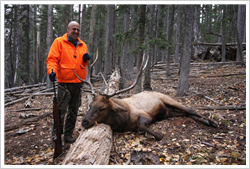Wildlife Laws Different, But Same Across States


As the holidays come and go, many outdoorsmen will travel with their families and friends to hunt in neighboring states. This presents the hunter with a whole new world of opportunity and risk.
For instance, a Kansas hunter who is used to setting out a bag of corn in order to hunt the deer that come to feed over it will find himself in trouble in both neighboring states of Colorado and Missouri. Colorado, for instance, only allows the use of bait for the taking of furbearers while Kansas allows the use of bait in the pursuit of deer and turkey.
In Missouri, many counties, including those sharing a border with Kansas, have in place "antler restrictions". These restrictions prohibit hunters from harvesting buck whitetail deer with less than four antler points on at least one side. This restriction is the topic of hot debate among big game hunters in Missouri who doubt its effectiveness at producing the large trophy animals as it was intended to do. Deer is illegal under this provision in Missouri, but would be legal just across the county line in Kansas or Nebraska.
Even waterfowl hunting differs from state to state, while being heavily influenced by the federal guidelines. Duck limits differ from state to state, depending on the usual available species and their abundance. Colorado has a daily limit of 5 Canada Geese per hunter and Kansas has a daily limit of 6 per hunter. Even shooting time can be different, with Kansas teal season shooting time being half-hour before sunrise and Missouri’s teal season shooting time being at precisely sunrise.
In short, if you travel to hunt, make sure you research thoroughly the laws of the state you’re traveling to. Even a small violation could ruin an otherwise phenomenal hunting experience. If you’re accused of a hunting violation or receive a hunting ticket, let a Wildlife Lawyer help you keep your voice and give you your day in court. You have rights and a Wildlife Lawyer can help protect them.
